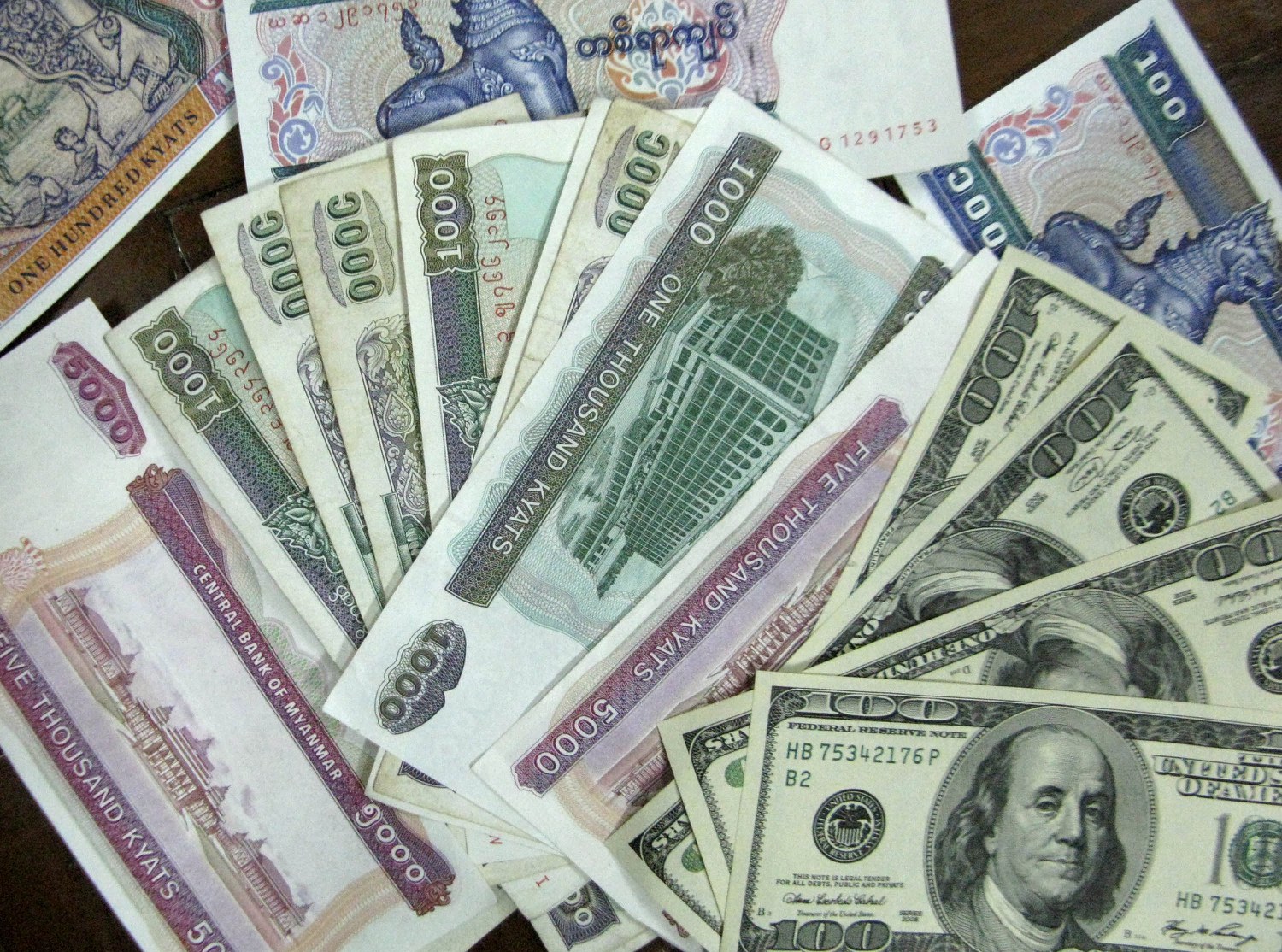At the end of last year, weeks before the third anniversary of the 2021 military coup that plunged Myanmar into c
At the end of last year, weeks before the third anniversary of the 2021 military coup that plunged Myanmar into chaos and war, the junta-controlled central bank took the rare step of freeing up its strict foreign exchange controls.
The Dec. 6 move by the Central Bank of Myanmar would mean that “buyers and sellers can set exchange rates by themselves depending on the market trends,” the official Global New Light of Myanmar reported.
Analysts say the partial liberalization allowing exporters to convert foreign currency into the domestic kyat at better rates reflected desperation for foreign currency needed to import materials to lift flagging exports and manufacturing.
Western sanctions on military-owned firms have started to pinch income, while the shadow opposition has worked to deny the major military-owned conglomerates revenue through boycotts of products and services.
As economic, political and military pressures mounted in 2023, the military regime tried to dampen demand for foreign currencies, cracked down on black market trading in a campaign that saw 140 money changer licenses revoked last year.
The new policy marked a U-turn by the military regime, which had tightened forex controls several times since the Feb. 1, 2021 overthrow of the country’s elected government, shifting from its predecessors’ managed floating exchange rate system to tighter administrative controls.
“Previously, the military junta was maintaining what they call a managed float that was trying to control the exchange rate between the Myanmar currency, the kyat, and the U.S. dollar in particular, trying to keep it within a certain range and intervening in the markets if the range got too high or too low,” said Michael Martin, a consultant and scholar on Myanmar.
“It helped provide predictability for trade purposes and investment purposes,” he told Radio Free Asia.
“Getting rid of that means they’ve introduced a level of uncertainty for traders in import and exporters for investors … and for the general public as well,” added Martin, who covered Myanmar for the U.S. Congressional Research Service before his retirement.
Junta Deputy Information Minister Major Gen. Zaw Min Tun was quoted by state-owned media as saying the relaxation of certain forex controls was intended “to prioritize production sectors for the development of the country, while promoting the export sector.”
Inflationary pressure?
The regime spokesman also said the military government expected the easing of controls would bring in more hard currency through remittances from migrant workers abroad and the export sector.
A key change implemented in December relaxed administrative controls forcing businesses to exchange foreign currency export revenue to Myanmar’s kyat at an overvalued “official” exchange rate. The policy allowed regime-linked entities and individuals to arbitrage between the official rate of 2,000 kyat to the U.S. dollar and the black market rate of more than 3,000 kyat.
Under the new rules, the 50 percent of the export revenue received from exports that traders had to exchange at the official rate of 2,100 kyat to the dollar was reduced to 35 percent of the export revenue.
The tight control on foreign currencies has caused significant losses for exporters and importers, and some of them have suspended their business or reduced their export volume – causing prices of fuel, hard currency, gold and commodities to soar.


A rice merchant in Muse at the China-Myanmar border said traders are scrambling to adjust to the latest of frequent policy shifts.
“Exporters have seen positive outcomes. However, import items depend on the current exchange rate. So, we cannot imagine the possible market,” said the merchant.
“Under the new exchange rate, the exporters will get benefits and opportunities, while importers will be at risk of losses. Hard currency trade will decline,” an import/export businessman from the commercial capital Yangon told RFA Burmese on condition of anonymity.
Martin said the new forex strategy could buy short-term stability while storing up greater risks for Myanmar and its people.
“Temporarily, it’s a relief valve, but now they’re going to have to use more and more money,” he said.
“Another implication of that is if you’re circulating more and more money to get what you need, more money running around trying to buy the same number of goods, prices tend to go up … you can potentially get an inflationary spiral.
Reported by RFA Burmese and Lauren Kim. Translated by Aung Naing. Written by Paul Eckert.
www.rfa.org

COMMENTS